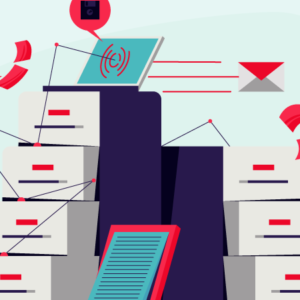Description
In our increasingly connected world, endpoints such as laptops, smartphones, tablets, and desktop computers are prime targets for cybercriminals. Each endpoint represents a potential entry point for attackers, making endpoint security a critical component of your overall cybersecurity strategy. In this blog, we will explore what endpoint security is, why it’s essential, and the key solutions available to protect your business.
What is Endpoint Security?
Endpoint security refers to the practice of securing endpoints, or end-user devices, against cyber threats. This includes a range of techniques and tools designed to detect, prevent, and respond to malicious activity that targets these devices. Effective endpoint security ensures that every device connected to your network is protected against threats, thus safeguarding your sensitive data and maintaining the integrity of your IT infrastructure.
Why Endpoint Security is Essential
1. Rising Cyber Threats
Cyber threats are becoming more sophisticated and frequent. Malware, ransomware, phishing attacks, and zero-day exploits are just a few examples of threats that can compromise endpoints. Without robust endpoint security, your business is vulnerable to these attacks, which can lead to data breaches, financial loss, and reputational damage.
2. Increased Remote Work
The shift towards remote work has expanded the attack surface, as employees access corporate networks from various locations using different devices. Endpoint security solutions help protect these remote endpoints, ensuring that your business remains secure even when employees work from home or other remote locations.
3. Data Protection
Endpoints often store sensitive information, such as personal data, financial records, and intellectual property. Protecting this data is crucial for maintaining customer trust and complying with data protection regulations. Endpoint security solutions provide the necessary safeguards to keep this data secure.
4. Regulatory Compliance
Many industries are subject to regulatory requirements that mandate the protection of endpoint devices. Implementing endpoint security solutions helps your business comply with these regulations and avoid potential fines and legal issues.
Key Endpoint Security Solutions
1. Antivirus and Anti-Malware Software
Traditional antivirus and anti-malware software are the first lines of defense against known threats. These tools scan for, detect, and remove malicious software from endpoints. Modern solutions use advanced techniques like behavioral analysis and machine learning to identify new and evolving threats.
2. Endpoint Detection and Response (EDR)
EDR solutions provide real-time monitoring and detection of suspicious activities on endpoints. They offer advanced threat detection capabilities, incident response tools, and comprehensive visibility into endpoint activities, allowing you to quickly identify and respond to threats.
3. Next-Generation Firewalls (NGFW)
NGFWs extend traditional firewall capabilities by incorporating features like intrusion prevention, application control, and threat intelligence. They help protect endpoints by filtering traffic and blocking malicious activities.
4. Data Loss Prevention (DLP)
DLP solutions monitor and control data transfers across endpoints to prevent unauthorized access and data leakage. They ensure that sensitive information is not shared or transmitted outside the corporate network without proper authorization.
5. Encryption
Encryption tools protect data at rest and in transit by converting it into unreadable code that can only be decrypted with the correct key. This ensures that even if an endpoint is compromised, the data remains secure and inaccessible to unauthorized users.
6. Mobile Device Management (MDM)
MDM solutions enable businesses to manage and secure mobile endpoints, such as smartphones and tablets. They provide features like remote wipe, device encryption, and policy enforcement to ensure that mobile devices adhere to security standards.
7. Patch Management
Regularly updating and patching software and operating systems is crucial for protecting endpoints against vulnerabilities. Patch management solutions automate the process of identifying and deploying updates, ensuring that endpoints remain secure and up-to-date.
Best Practices for Implementing Endpoint Security
- Adopt a Multi-Layered Approach: Implement multiple layers of security to protect endpoints, including antivirus, EDR, firewalls, and encryption.
- Regularly Update Software: Ensure all endpoint devices have the latest security patches and software updates to protect against known vulnerabilities.
- Educate Employees: Train employees on best practices for endpoint security, such as recognizing phishing attempts, using strong passwords, and reporting suspicious activities.
- Enforce Strong Access Controls: Implement strict access controls and authentication measures to ensure that only authorized users can access sensitive data and systems.
- Monitor and Respond to Threats: Continuously monitor endpoints for suspicious activities and have a response plan in place to quickly address any security incidents.
Conclusion
Endpoint security is a critical aspect of protecting your business from the ever-evolving landscape of cyber threats. By implementing comprehensive endpoint security solutions, you can safeguard your devices, data, and network from malicious activities. Stay proactive and invest in robust security measures to ensure the continued safety and integrity of your business operations.





